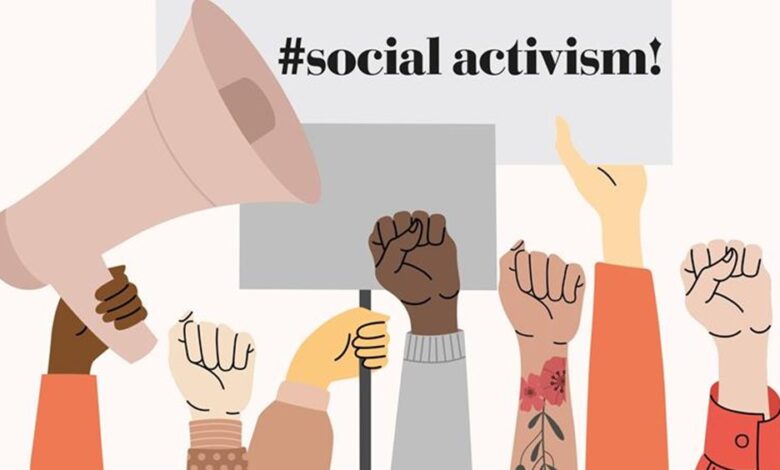The rise of social activism in entertainment

In recent years, there has been a noticeable rise in social activism in entertainment. Many celebrities and public figures are using their platforms to raise awareness and advocate for social justice causes. This trend is fueled by the growing awareness of social issues and the power of social media in amplifying voices and promoting change.
One way in which social activism has become more prevalent in entertainment is through the inclusion of social justice themes in movies, TV shows, and music. Productions such as “Black Panther,” “Get Out,” and “The Handmaid’s Tale” have tackled issues such as racism, sexism, and inequality, and have sparked important conversations about these topics.
Celebrities have also been using their social media platforms to raise awareness about social issues and encourage their followers to take action. For example, singer Beyoncé has been vocal about her support for the Black Lives Matter movement, while actor Leonardo DiCaprio has used his platform to advocate for climate change awareness.
Furthermore, many celebrities have become involved in activism outside of their work in entertainment. They have used their wealth and influence to donate to charities, organize fundraisers, and support political campaigns.
However, the rise of social activism in entertainment has also faced criticism from some who believe that celebrities should stick to entertainment and leave politics to politicians. Others argue that some celebrities use activism merely as a way to promote their own image.
Despite these criticisms, the trend of social activism in entertainment shows no signs of slowing down. As social issues continue to dominate headlines, it is likely that more public figures will use their platforms to raise awareness and promote change.
In addition to raising awareness about social issues, social activism in entertainment has also led to changes within the industry itself. For example, the #MeToo movement exposed the prevalence of sexual harassment and assault in Hollywood, leading to changes in the way that studios and production companies handle these issues.
There has also been a push for greater diversity and representation in entertainment, with more calls for more women, people of color, and members of the LGBTQ+ community to be included in front of and behind the camera. This has led to the creation of more inclusive content and the recognition of artists who have been historically underrepresented in the industry.
Furthermore, social activism in entertainment has provided opportunities for audiences to engage with social issues in a way that is accessible and engaging. Movies, TV shows, and music can provide a powerful way to connect with audiences and spark conversations about important topics.
Overall, the rise of social activism in entertainment has had a significant impact on the industry and on society as a whole. While there may be challenges and criticisms, the importance of using one’s platform to advocate for social justice cannot be underestimated. As the entertainment industry continues to evolve, it will be interesting to see how social activism continues to shape its future.


